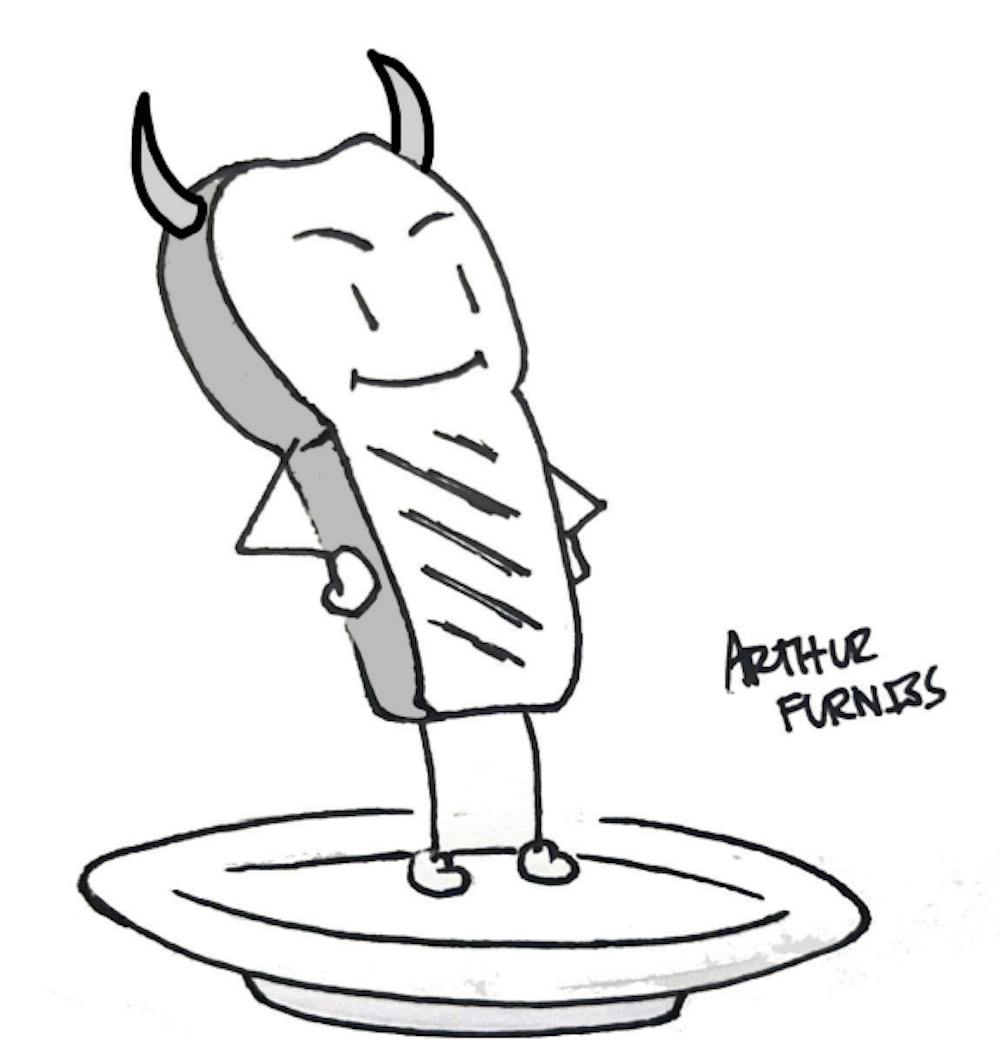Content warning: This article contains references to eating disorders.
It’s 8:30 on a Monday morning, and I’m having a staring contest with my breakfast.
When did toast get so scary? It makes sense if you look at it hard enough. That square, sharpened shape. The top half is dark, an almost burnt brown. The bottom half is barely toasted and resembles a storm cloud. And the shape — it’s like it’s demanding to know how you’re going to eat it. Will you attack from the sides – working your way to the middle, which is now weakened without a crusty armor to protect it from your incisors? Or will you instead attack from an angle, gradually extending its front line before devouring it into nothing but buttery crumbs on your finger tips?
Still staring at the toast, I realize that I haven’t breathed in a minute — I should probably do that.
There’s a common misconception that people with disordered eating appear physically exactly as the media portrays them to be. Similar to most things portrayed by the media, this is total horses**t. It only makes sense that constantly dwelling on the perceived correlation between the size of my body and how much I must eat would make eating a stressful task.
But I get away with it. Every day I get a normal plate of food, but usually I’ll eat less than a quarter of it. It will normally go unnoticed, except for the occasional awkwardness this creates for my companions as they sit behind cleared plates and wonder when I’ll be done eating so we can go home.
I do eat enough, thankfully. I have learned to graze, eating cucumber slices by the bowlful and random bowls of cereal here and there. But there’s something about meals that is much harder.
This new tension between myself and my toast stems from an offhand, intoxicated comment someone made in my direction over the weekend. Though the chicken tender she was being offered would likely have been a cure for her inebriated ails, she instead brushed it aside, proclaiming that it was for “fat people.” I paused to look at the sandwich in my hands, the only real thing of substance I’d been able to eat all day. Suddenly, I wasn’t hungry anymore.
It’s weird to be at a crossroads of both knowing that this fear of food is irrational yet still feeling continually susceptible to it. I know that I eat what my body needs. I know that I walk an arbitrary 15,000 steps a day. I know I do what I can to be healthy, and I’m satisfied with that. Yet those offhanded comments still have a profound effect on me — there is nothing that I can do to stop them from getting to me.
So I feel bad for myself. But also, I feel bad for her. I think of how delicious that chicken tender would have been. How cruel it is to live your life with a gnawing feeling that food will make your body something you don’t want it to be — something you think will make you unlovable. It won’t. I have been fat my whole life, but I have also been loved my whole life.
For many years, I correlated my self-worth with my size. I would regularly decide to proactively try to lose weight. This effort was motivated not by a desire to be healthier but instead a desire to look healthier; it almost always would put me in a headspace of disordered eating thoughts and sometimes even nearly push me into clinical eating disorder territory. At some point, I realized that learning to accept and love myself unconditionally was never going to stem from how conventionally attractive I was. I realized that truly accepting myself meant that as long as I know I’m making the choices that honor my mind and body, that is enough. Growing up in a body that is constantly rejected from romanticization only means I’ve truly had to learn to love myself, for all my parts, before I can love anyone else.
I take another deep breath. I stare at the toast. It stares at me.
I think this time I’ll eat it diagonally.


![Copy of Editorial [Susanna] (3) (1) (2) (1).JPG](https://snworksceo.imgix.net/mbc/11c1e285-1b2c-4ee9-9d20-4a2f24335290.sized-1000x1000.JPG?w=1500&ar=16%3A9&fit=crop&crop=faces&facepad=3&auto=format)

